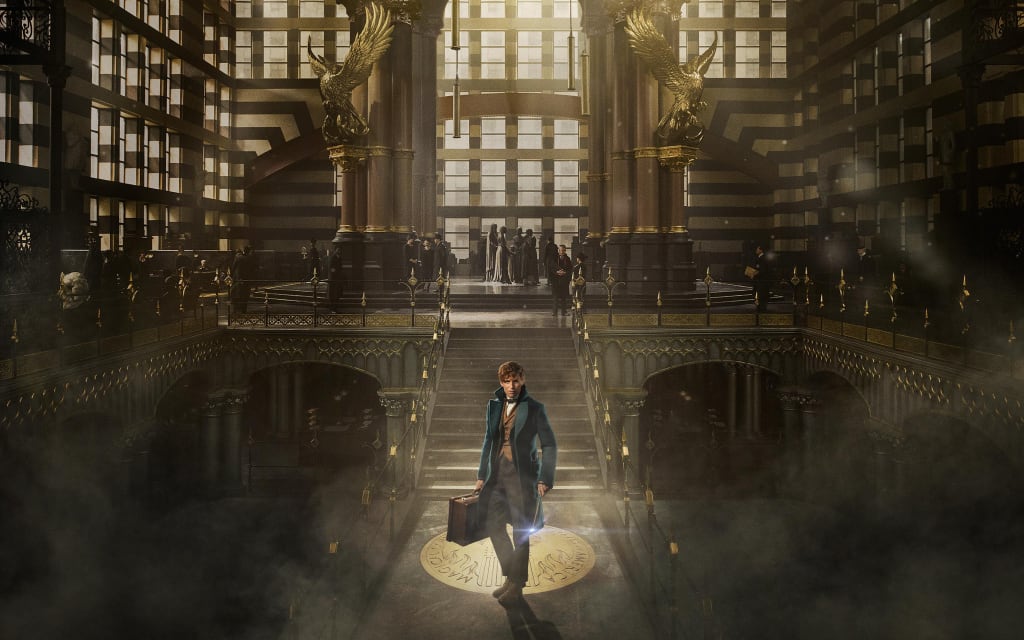
It's incredible to think that Harry Potter and the Sorcerer's Stone was originally released back in June 1997. Now, a full 19 years later, we're returning to the Wizarding World in Fantastic Beasts and Where to Find Them — a cinematic triumph that's sure to be box office gold! As the years have passed, J. K. Rowling's status and influence has only grown. She's become a surprisingly political figure, and Harry Potter fans will see more than a hint of Rowling's growing political views in Fantastic Beasts...
J. K. Rowling has gone political.
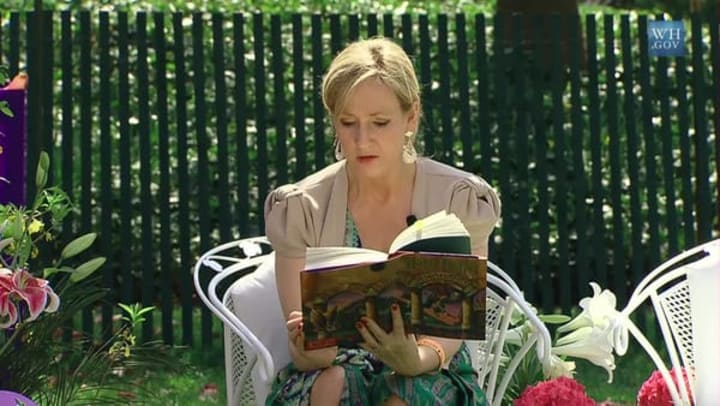
J. K. Rowling. Image: Wikipedia Commons
J. K. Rowling first got the idea for Harry Potter back in 1990, when she was working for Amnesty International as a researcher and bilingual interpreter. She's remained heavily involved in politics ever since — and has consistently used her fame and wealth to support the causes she believes in. In 2008, she donated £1 million to the Labour Party; in 2014, she was the single biggest donor supporting the campaign to keep Scotland in the United Kingdom. She lost followers over her outspoken views on Brexit, and a check on her Twitter feed now would no doubt incense President-Elect Donald Trump. Rowling herself is unapologetic:
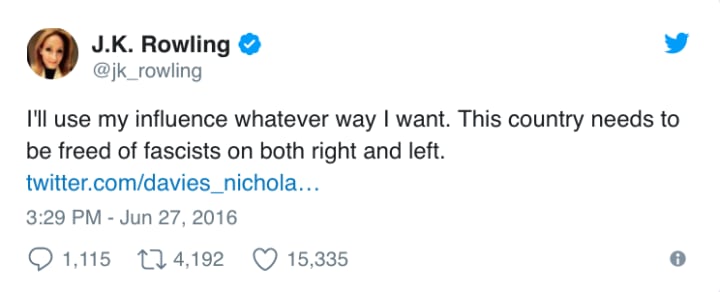
Image via Twitter
Perhaps most interestingly, though, Rowling has been focusing in on how politicians — particularly of the Right — create a narrative that captures the imagination.
"Nationalism is on the march across the Western world, feeding upon the terrors it seeks to inflame. Every nationalist will tell you that their nationalism is different, a natural, benign response to their country's own particular needs and challenges, nothing to do with that nationalism of yore that ended up killing people, yet every academic study of nationalism has revealed the same key features. Your country is the greatest in the world, the nationalist cries, and anyone who isn't chanting that is a traitor! Drape yourself in the flag: doesn't that make you feel bigger and more powerful? Finding the present scary? We've got a golden past to sell you, a mythical age that will dawn again once we've got rid of the Mexicans/left the EU/annexed Ukraine! Now place your trust in our simplistic slogans and enjoy your rage against the Other!"
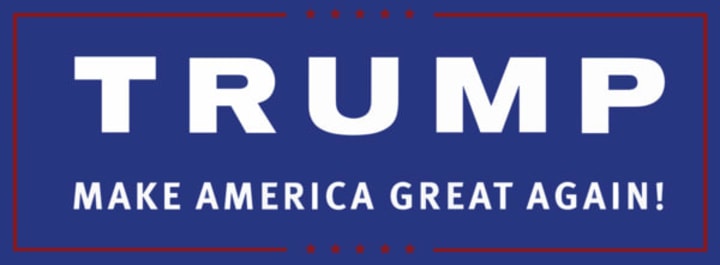
We all know the kind of things she's talking about. Image: Wikipedia Commons
It's no surprise that Rowling's political views are becoming ever more noticeable in her writing. Her Cormoran Strike novels, published under the pen name of Robert Galbraith, are filled with politics. But so is Fantastic Beasts.
The Politics of Fantastic Beasts and Where to Find Them
J. K. Rowling's vision of wizarding America in the 1920s is one that is characterized by fear of the Other — specifically, of No-Majs (Muggles, to us Brits). After the witch-hunts of Salem, the wizarding community has hidden itself from the public view; it's most telling that Alison Sudol's brilliant Queenie has actually never even spoken to a No-Maj before. She's living in a city of over 11 million of them, and she's literally never even had a conversation with a No-Maj! This is the extent to which the wizarding world has isolated itself.
It's little wonder, then, that Grindelwald's message is hitting home. Why should wizards live in fear, when they are the ones with power? His ideas are justified by the slogan "For the Greater Good" — of course, in his world, the No-Majs should be subjugated by the wizards. Aren't sorcerers wiser, greater, more knowledgeable and more powerful? It's for the No-Majs' own good that the wizards should rule.
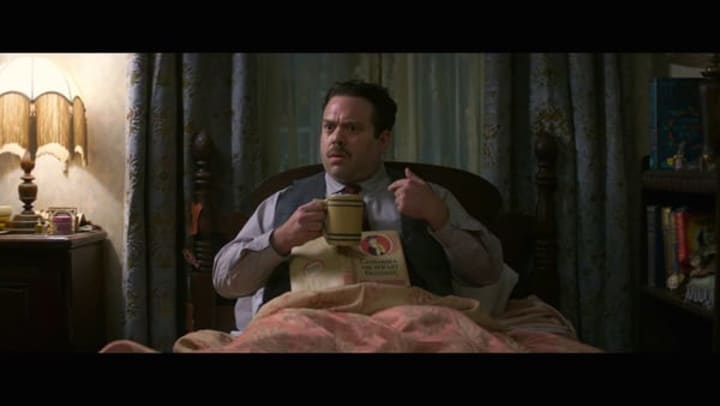
Wait, for MY own good? Image: Warner Bros.
Meanwhile, you see the same political dimension to Samantha Morton's Mary Lou. She has learned that witches and wizards live in secret, and she is angry and afraid. She seeks to expose them — and, let's be honest, to kill them. It's no coincidence that she styles her movement the 'Second Salemers', after the infamous Salem witch-hunts. Mary Lou is the polar opposite of Grindelwald; one is a wizard supremacist, the other a No-Maj supremacist.
Both, of course, live in fear of the Other.
What is the other?
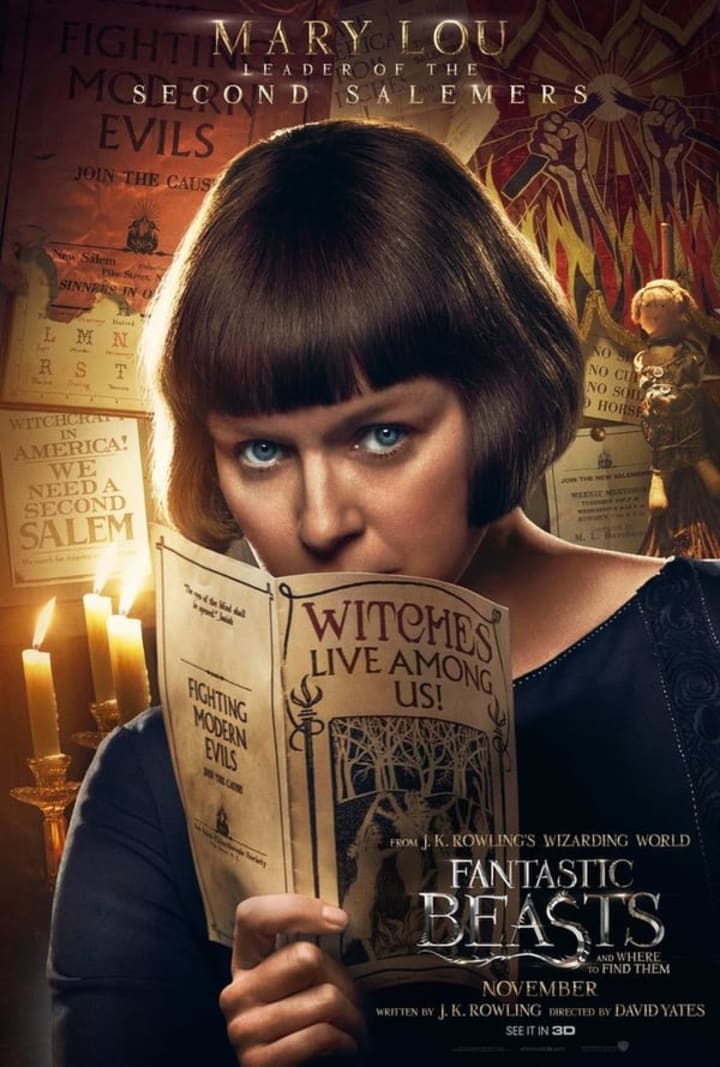
Image: Warner Bros.
Human nature is to group ourselves socially by those who are similar to us. We can group together around anything; Star Wars fans, Star Trek fans, gay, straight, bisexual, Republican, Democrat, white, black. The idea is that we identify commonalities, and build our social groups around those commonalities. It's a natural part of being human.
But how do we deal with people who don't share those commonalities? How do we deal with people who are different? Sadly, the very fact that we form social groups around our common interests or characteristics means others are automatically excluded. They are different to us, and our differences divide us. They become our 'Other', and soon can become the thing we hold responsible for all that is wrong in the world. At its worst, this process — known as 'Othering' — becomes the fuel for racism, xenophobia, sexism, and misogyny.
Both Mary Lou and Grindelwald have identified their Other. Mary Lou intends to lead literal witch-hunts against the wizarding world. Her fear manifests as a bitter rage, and she lashes out in anger against her foster-son Credence. In contrast to this, Grindelwald intends to lead the most powerful wizards in the overthrow of the status quo — in the overthrow of the No-Majs. His fear of Other manifests as a furious campaign for supremacy.
The Tragic Consequence of Othering
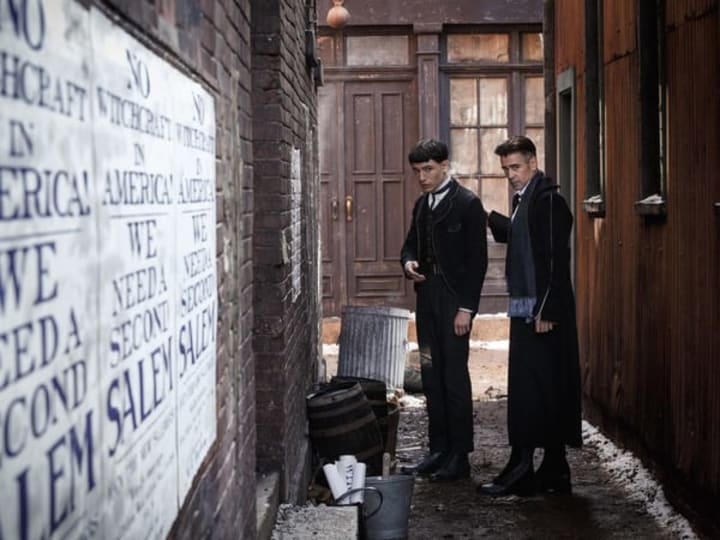
Poor Credence. Image: Warner Bros.
J. K. Rowling gives an idea of just how tragic all this can be when she introduces us to Credence. Forced to repress his own identity because of Mary Lou's fear, he becomes an Obscurial, rendering his magic ever more uncontrollable. Then, in a sickening twist, Grindelwald — who he was almost sexually attracted to — also rejects him. Grindelwald claims that Credence is a Squib, a person of magical ancestry who possesses no magic themselves, and thus is not worth Grindelwald's time. Rejected by both the Wizard and the No-Maj, something in Credence breaks, and he loses himself in destruction.
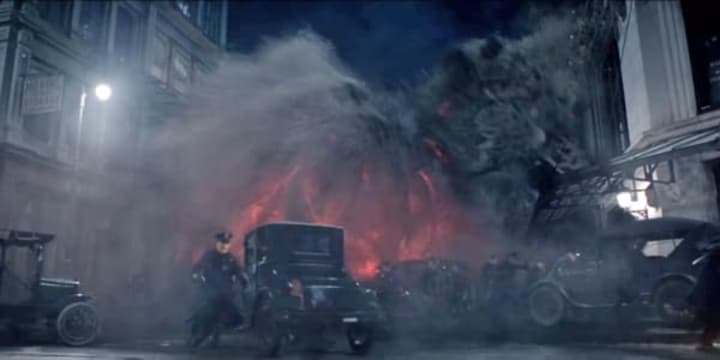
The Obscurus. Image: Warner Bros.
It's a heart-wrenching analogy, showing the ultimate consequence of Othering. Fear of the Other ultimately leads to the repression of people's own character; so homosexuals lived in fear of arrest and discovery, black people treated as possessions and slaves and further oppressed, and women were never given a chance to develop their skills and gifts. Such repression is ultimately destructive — first to the person who has been oppressed, but finally to society as a whole. If not for a few key fantastic beasts, New York would have become a battlefield between wizards and No-Majs, and both societies would have crumbled in the war.
You can draw pretty much any parallel you want. Wherever human beings differentiate ourselves from others — whether it be on the basis of gender, sexuality, race, religion, ethnicity, political persuasion, or any of a thousand other factors — the cause is the same: the fear of Other. Fantastic Beasts stands in opposition to this; the heroes are male and female, wizard and No-Maj, striving to save the world from the forces of fear.
As you can see, J. K. Rowling is increasingly political — and those political views are now seeping into her stories. The nature of fiction is to hold a mirror up against the realities of human nature, and the best fantasies have very real-world implications. Personally, I'm more than happy for Rowling to have found a voice for her politics in the world of Harry Potter that she's created.
About the Creator
Tom Bacon
A prolific writer and film fan, Tom has a deep love of the superhero genre.


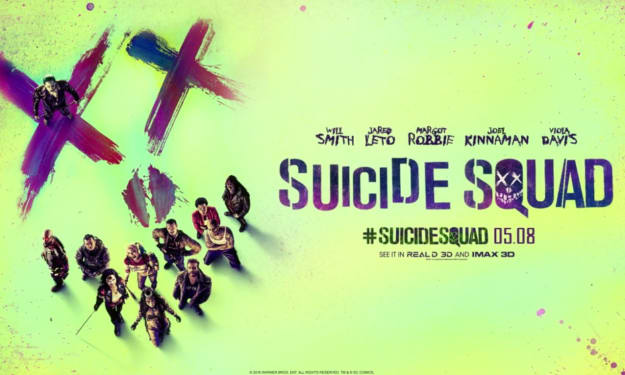

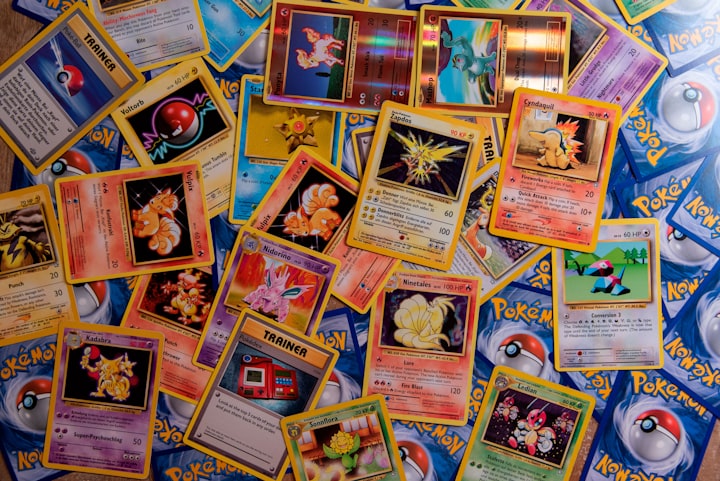

Comments
There are no comments for this story
Be the first to respond and start the conversation.